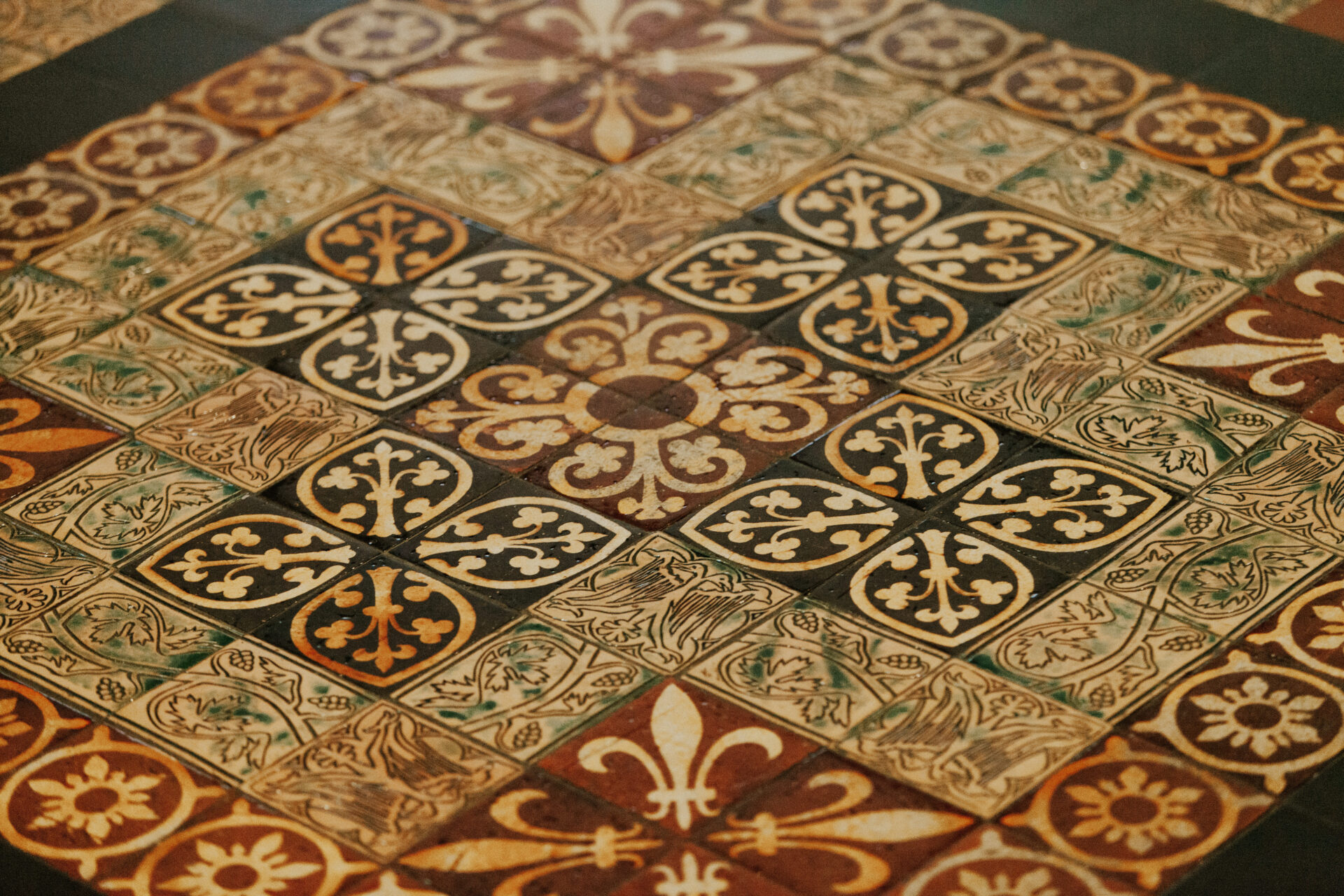Until my twenty-second birthday, my life was trial and suffering-free. I didn’t suffer from any major illnesses or family crises, and my upbringing was stable and loving, a gift for which I’m grateful. Compared to many people I knew, I had nothing to complain about. All of that changed in the weeks before my twenty-second birthday, when God used a significant financial and medical crisis in my marriage to help me discover more about his power, mercy, and work of sanctification than I would’ve without it. Over the course of sleepless nights and days sitting in a hospital room, looking out to gray, rainy skies, God met me in a hospital room—when I was spiritually at my lowest—and taught me about healing, reliance on him, and the often-difficult means of sanctification he uses for my good and his glory.
Healing Is in God’s Hands, Not Mine
For nearly three weeks, I helplessly watched as my husband’s physical health deteriorated. Each day after work, I’d come home to the discouraging reality that he was no better, but in fact, growing worse. After he was finally admitted to the hospital, I sat in a scratchy hospital chair for nearly a week, waiting and watching for improvement. As his hydration levels improved and kidneys began functioning again, I celebrated. As his appetite expanded and his energy increased, I thought the end of the suffering and pain was near. But it wasn’t. As I heard his life-altering, permanent diagnosis, I knew that we were at the beginning of a long journey, awaiting a healing that would ultimately come in the new heavens and earth. While I wrestled with the implications of my husband’s chronic illness diagnosis, God repeatedly used Scripture to remind me that healing is ultimately in his hands, not in mine.
In John 9, we read of Jesus healing a man who was born blind. The disciples question Jesus, asking if the man or his parents sinned, leading to his blindness. However, Jesus replies, “It was not that this man sinned, or his parents, but that the works of God might be displayed in him.” (Jn. 9:3) As I wrestled with my husband’s diagnosis and the inevitable ways it would change our family and marriage, John 9 convicted me that my husband’s illness, as incomprehensible to me as it was, would be used by God to display his good works. I’ll never have control over my husband’s illness. I can’t cure him or remove the limitations of it. However, I can surround him with ongoing love, support, encouragement and flexibility, trusting that God will use my husband’s illness for his glory.
During my husband’s hospital stay, the words of Psalm 73:25-26 provided deep encouragement when I felt tempted to give up hope:
“Whom have I in heaven but you? And there is nothing on earth that I desire besides you. My flesh and my heart may fail, but God is the strength of my heart and my portion forever.”
As I read these verses while looking at my husband’s weak, broken body, God reminded me that only he could strengthen my husband’s “flesh and heart.” While I wrestled with my desire to control my husband’s health and the outcome of his hospital stay, God encouraged me with the reminder that my hope is not in my ability to control a situation or heal my husband, but in his power and commitment to being the eternal “strength and portion” not only of my husband, but also me. Even on the most difficult days, the promise of Psalm 73 continues to encourage and bring me hope.
As I grappled with the lifelong implications of my husband’s chronic illness, God repeatedly brought my attention to the comforting promises of Revelation 21:3-4:
“Behold, the dwelling place of God is with man. He will dwell with them, and they will be his people, and God himself will be with them as their God. He will wipe away every tear from their eyes, and death shall be no more, neither shall there be mourning, nor crying, nor pain anymore, for the former things have passed away.”
The comfort of Revelation 21 has given me a greater anticipation of heaven. Only in heaven will my husband’s illness be eternally cured and he will be given a disease-free body, free from all complications and limitations. Praise God! Healing is not in my hands, but is promised by our good and gracious God, who will one day usher in a new heavens and earth where pain will no longer be a reality for his people.
God Provides for My Every Need
Even as God strengthened my faith and trust in him for my husband’s healing, the medical crisis my husband walked through also ushered in a major financial issue: his medical bills drained nearly all of our savings and my income was barely covering our monthly expenses. For months on end, medical bills were overwhelming, not only threatening our financial stability, but my reliance on God to provide for our needs. Over the course of my life, I’d read stories of God providing substitutes for offerings (Gen. 22:8-14), abundance in the midst of famine (Gen. 45:11), a Promised Land for his chosen people (Josh. 1:13), a chosen king for Israel (1 Sam. 16:1), materials to rebuild the temple from a pagan king’s treasuries (Ez. 7:20), and the ultimate sacrificial lamb to die for the transgressions of sinful people (Lk. 23:26-43). How could this same, ever-providing God not also provide for my needs, too? After months of intense financial stress, I was able to look back and see the little (and big) ways God provided: fiscal year-end bonuses, pay increases, new jobs, and financial assistance from various people. Walking through this season of intense financial need made me more aware of God’s day-to-day provision in my life, more appreciative of the big and small ways he sees and provides for my every need, even when I’m least expecting it or am failing to trust in his provision.
God Uses Hospital Rooms as a Means of Sanctification and Growth
As difficult as my husband’s illness and diagnosis was, I look back on those difficult weeks as a means God used to sanctify me. In a cold, fourth-floor hospital room, God met me in my darkest hour and taught me about his power to heal and provide for all of my needs. I didn’t ask God to send me or my husband through a devastating medical and financial crisis. However, it was part of his sovereign plan for my life and sanctification. The authors of the Heidelberg Catechism–a 16th century document used by the church to teach Reformed theology and doctrine–explain that, because of God’s sovereign plan, “all things, in fact, come to us not by chance but by his fatherly hand.”1 Knowing God’s sovereignty and providence is a great comfort to me, even as God’s means of sanctifying me are faith-testing, difficult, and costly. The Heidelberg Catechism reminds us that when we know about God’s providence, “We can be patient when things go against us, thankful when things go well, and for the future we can have good confidence in our faithful God and Father that nothing in creation will separate us from his love. For all creatures are so completely in God’s hand that without his will they can neither move nor be moved.”2 Now, looking back, I’m grateful to God for using means like hospital rooms and chronic illness diagnoses as a means of sanctification and growth for my good and his glory.
Reflection Questions
- What season or trial in life did God use to strengthen your faith?
- How did God use that trial to teach you about himself, his character and purposes?
- What Bible verses or truths were convicting or encouraging in that season?
- In what ways is God prompting you to use the lessons from that trying season to bless or encourage others?
Footnotes:
1 Heidelberg Catechism, Question 27
2 Heidelberg Catechism, Question 28
Photo Credit: Emilee Carpenter
Leah Jolly is a theologian and writer with a Master of Divinity from Calvin Theological Seminary, where she is now pursuing a Master of Theology in Systematic Theology. Her writing has been featured by The Gospel Coalition, Hosanna Revival, andCore Christianity, covering Reformed theology, adoption, spiritual disciplines, and the application of Scripture to everyday life. She's passionate about helping others see the beauty of Scripture and the goodness of the gospel. You can connect with Leah on Instagram and Substack.







1 comment
I’m so encourage by what you wrote… I’m going to print this out and read it daily, my husband was diagnosed with GBS, June 21st 2024.. I too, am a sister in Christ and reading God’s words through you will give me such strength in Hom and Him alone and not me during this trial, thank you again for the calling that you answered it will bless many. May God be glorified always